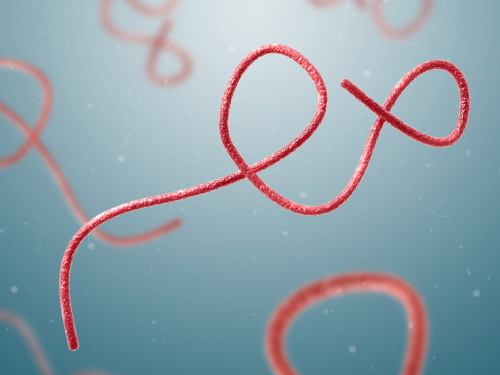
The U.S. Food and Drug Administration (FDA) approved a treatment for the Zaire Ebolavirus infection in adults and children.
The treatment is called Ebanga, a human monoclonal antibody that blocks the virus’s binding to the cell receptor, thus preventing its entry into the cell.
Zaire Ebolavirus is one of four Ebolavirus species that can be potentially fatal in humans. It is transmitted through blood, body fluids, and tissues of infected people or wild animals and contaminated surfaces and materials, such as bedding and clothing. Individuals who care for those with the disease are at the highest risk for infection.
During an Ebola outbreak in the Democratic Republic of the Congo (DRC) in 2018-2019, Ebanga was evaluated in a clinical trial led by the U.S. National Institutes of Health and the DRC’s Institut National de Recherche Biomédicale.
In the trial, the safety and efficacy of Ebanga were evaluated on 174 participants (120 adults and 54 pediatric patients) with confirmed Ebolavirus infection. Also, 168 participants (135 adults and 33 pediatric patients) received investigational control. Of the 174 patients who received Ebanga, 35.1 percent died after 28 days, compared to 49.4% of the 168 patients who received a control.
The FDA approved Ridgeback Biotherapeutics. Ebanga was granted an Orphan Drug designation, which provides incentives to assist and encourage drug development for rare diseases. Additionally, Ebanga was granted a Breakthrough Therapy designation.




